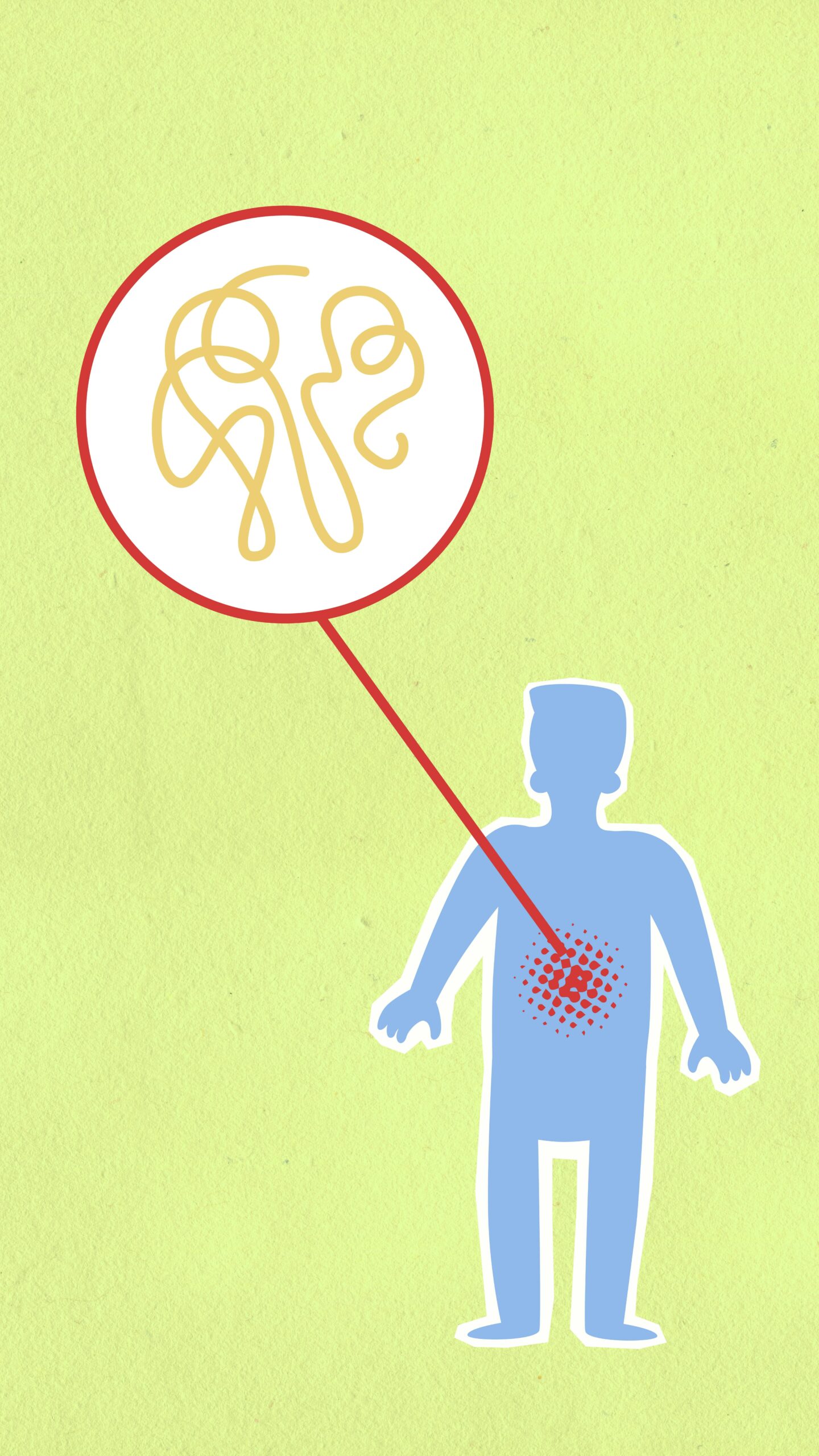1. Introduction: What Is the Genome–Diet Interface?
The Genome–Diet Interface refers to the biological relationship between your genes and the nutrients you consume. It investigates how genetic makeup affects the way the body responds to different diets, and how, in turn, diet can influence the activity of certain genes. This two-way interaction has major implications for disease prevention, wellness strategies, and nutrition recommendations.
Understanding this interface is becoming more important due to rising interest in personalized nutrition based on DNA, where meals and supplements are chosen based on individual genetic profiles. At the center of this movement is a field called nutrigenomics, which explores how nutrients impact gene expression.
2. Understanding the Science Behind Nutrigenomics
Nutrigenomics is the study of how diet influences gene activity. When we eat certain foods, they can switch genes on or off, influencing everything from metabolism to inflammation. The impact of nutrition on gene expression is not only fascinating but crucial for building diets tailored to our unique needs.
Another critical area is epigenetics and nutrition, which shows how external factors like food can alter gene expression without changing the DNA sequence itself. These changes can be temporary or long-lasting, even passed down to future generations.
To fully understand this field, we must compare nutrigenetics vs nutrigenomics. Nutrigenetics focuses on how our genes determine our response to nutrients, while nutrigenomics looks at how nutrients affect gene behavior. For example, a certain food might increase a gene’s activity in one person but have no effect in another.
Some foods have compounds that act as dietary triggers for genetic expression, like cruciferous vegetables that promote detoxification pathways. Similarly, omega-3 fatty acids may reduce inflammation by suppressing genes involved in inflammatory responses.
3. How Genetic Variation Affects Nutrient Metabolism
Not everyone digests or uses nutrients the same way. This is where genetic variation and food tolerance play a major role. Some people tolerate dairy or caffeine well, while others do not, due to variations in specific genes.
At the core of this diversity are Single Nucleotide Polymorphisms (SNPs)—tiny changes in DNA that can affect how your body processes nutrients. The role of SNPs in nutrition planning is now recognized in crafting more precise diet plans. For example, SNPs can influence how you absorb vitamin D, metabolize folate, or process saturated fats.
To help dietitians and doctors use this information, researchers rely on genomic biomarkers in diet planning, which are measurable indicators in genes that predict how an individual will respond to specific nutrients or foods.
4. Personalized Nutrition Based on DNA
Thanks to science and technology, we now have access to DNA-based diet recommendations through saliva tests that decode your genetic profile. These tests reveal how your body reacts to different macronutrients, food groups, and even exercise plans.
The key benefit of tailored diets using genetic data is that it helps eliminate the trial-and-error process of dieting. People can avoid foods that negatively impact their health and focus on ones that provide better results based on their unique biology.
Many companies offer DNA testing for nutritional needs, with reports suggesting what vitamins you need more of, how your body handles carbs or fats, and even your caffeine tolerance. However, these insights are most helpful when interpreted by a trained health professional.
Despite its promise, DNA-based nutrition is still in development. Accuracy and usefulness depend on high-quality data and interpretation. As of now, it’s an evolving tool, not a guaranteed solution.
5. Genome–Diet Interface and Chronic Disease Prevention
Research shows a strong link between gene-diet interactions in obesity and other chronic diseases. Certain genetic profiles are more prone to weight gain when exposed to high-fat diets, while others may be more resilient.
Understanding how genes and diet connect can help prevent conditions like type 2 diabetes, cardiovascular disease, and metabolic syndrome. Tailored diets can be used as preventive strategies based on your genetic risk.
Ongoing nutritional genomics research explores how specific nutrients influence genes that play a role in disease development. For example, high-fiber diets may downregulate genes associated with inflammation, while high-sugar diets may trigger genes involved in fat storage.
These findings suggest that even simple changes in diet—guided by your genes—could make a big difference in long-term health.
6. Role of Microbiome and Epigenetics in Gene–Diet Interaction
The microbiome and genetic diet connection is another exciting aspect of the genome–diet interface. Your gut bacteria interact with the food you eat and influence how nutrients are processed and which genes get activated.
For example, a high-fiber diet can promote the growth of gut bacteria that produce compounds influencing brain function and immunity. These microbial effects can, in turn, alter gene expression, especially in the digestive tract and immune system.
In the long term, epigenetic markers and dietary impacts can affect everything from metabolism to aging. Epigenetic changes caused by diet are reversible to some extent, offering potential for dietary interventions to correct or reduce genetic risk factors.
7. Challenges and Ethical Considerations
While gene-based diets sound promising, there are concerns to consider. The first is data privacy. People providing genetic information for nutritional analysis may risk exposing sensitive health data.
There are also scientific limitations and lack of standardization in this field. Not all DNA testing kits are equally reliable, and not all genes related to nutrition have been fully studied.
Another barrier is cost. High-quality precision nutrition and genomics services may be out of reach for many people, making this technology more accessible to privileged groups.
Finally, there are ethical implications of DNA-based dietary recommendations, including discrimination based on genetic information and the potential misuse of genetic data by insurers or employers.
8. Future of the Genome–Diet Interface
The future looks promising for this emerging field. Advancements in nutritional genomics research are opening up new ways to prevent and manage diseases through diet.
There’s growing interest in using artificial intelligence and machine learning to analyze genetic data and predict how people will respond to certain diets. This future of gene-based nutrition may eventually lead to supermarket apps that scan your DNA and tell you what foods to buy.
With the integration of big data and deeper genetic analysis, the genome–diet interface could help governments and healthcare providers tailor nutrition strategies to populations, improving public health outcomes.
9. Conclusion
The genome–diet interface is changing how we view nutrition. Instead of one-size-fits-all, it promotes a more precise and personal approach. By understanding your genetic profile, you can tailor your food choices to support better health, prevent disease, and boost energy levels.
This new frontier combines science, technology, and nutrition to unlock your full health potential. While the field is still growing, it offers a powerful tool for those seeking more effective, science-backed dietary guidance.
As with any medical decision, it’s important to consult professionals when using genetic data to guide your diet. But one thing is clear: your genes and your food are in constant conversation—and now, we’re finally learning to listen.
10. FAQs
What is the genome–diet interface?
It refers to the interaction between your genetic makeup and the food you eat, influencing how your body responds to different nutrients.
Can your genes affect how your body reacts to food?
Yes. Genes can influence digestion, metabolism, and how nutrients are processed, affecting weight, energy levels, and disease risk.
What is the difference between nutrigenomics and nutrigenetics?
Nutrigenetics studies how genes influence your response to nutrients, while nutrigenomics studies how nutrients affect gene expression.
Is personalized nutrition based on DNA effective?
It holds promise and may help tailor diets more accurately, though it should be used alongside professional guidance and not replace general healthy eating habits.
How does the microbiome fit into the genome–diet relationship?
Your gut microbiome influences how food is broken down and how certain genes behave, adding another layer to the gene-diet connection.





